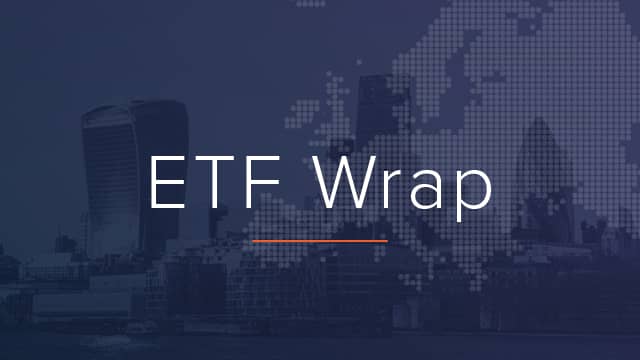One of the more thought-provoking and divisive figures in ESG and HSBC Asset Management former head of sustainable investments Stuart Kirk this week slammed asset managers which divest from their coal shares.
While the impact of divestment has certainly been questioned in the past, it was the timing of Kirk’s post that was most interesting.
Earlier in the week, his former employee HSBC AM announced plans to remove thermal coal from across its active and passive holdings by 2040.
HSBC AM said it did not comment on former employees.
Kirk's comments precede a keynote he will deliver on 6 October at ETF Stream’sESG ETFs Investor Workshop around the aptly chosen title In Defence of ESG.
“I will be pushing the investment case for ESG ETFs and will explain why both sets of three letters are attractive but widely misunderstood,” Kirk said. “They have more in common than you realise.”
“Last year I gave a presentation, signed off by HSBC, at the ETF Stream Investors Forum called Heroes, Myths and Monsters in ESG-land,” Kirk said. “It was a blast, and people who were there have pointed out that I made many of the same arguments I uttered six months later in my infamous , for which I was hung, drawn and quartered.”
Since that moment, which at first outraged ESG advocates before prompting a period of self-reflection for the movement, Kirk has continued to be outspoken about the damage done by empty promises and greenwashing – and the need to be able to have frank discussions on contentious issues.
One of the memorable soundbites from the speech that catapulted Kirk into the public eye was when he revealed the average loan length at a bank such as HSBC AM is around six years. Whatever happens after that bears little importance for most in finance.
“What happens to the planet in year seven is actually irrelevant to our loan book,” he said. “For coal, what happens in year seven is actually irrelevant. Let us get back to making money out of the transition.”
Since resigning from HSBC AM in July, Kirk decried the “virtue signalling” in asset management and said a “cancel culture destroys wealth and progress”. Human ingenuity will overcome the climate-related challenges ahead, he argued.
While having pointed words for much of the industry, he praised ETF issuer Engine No.1 for its engagement with Exxon Mobil, affecting changes to its board while owning just 0.02% of its shares.
A Kwasi week for the UK
In an historic moment for British economics and assets, Chancellor Kwasi Kwarteng’s ‘mini budget’ last Friday nearly caused a Northern Rock event, with a run on long-dated gilts forcing the Bank of England to intervene with an emergency round of quantitative easing.
Without this lifeline, “around 90% of UK pension funds would have run out of collateral. They would have been wiped out,” Cardano investment CEO Kerrin Rosenberg said in a letter to the central bank, reported by the Financial Times.
ETFs were also hit by the fallout of Kwarteng’s miscue. Though only one of many, Europe’s largest broad UK sovereign debt wrapper, the $1.2bn iShares Core UK Gilts UCITS ETF (IGLT), has plummeted 25% over the past month, as at 28 September, and even traded at a 1.08% discount to its net asset value (NAV), 180 times greater than its historical average.
The Chancellor’s unfunded tax cuts also prompted a run on sterling, which saw the currency briefly fall to its worst exchange rate against the US dollar in 50 years. This prompted US dollar-hedged iterations of FTSE 100 ETFs to outperform vanilla iterations of the exposure by as much as six percent in a month, while the WisdomTree Long USD Short GBP ETC (GBUS) jumped 5.4% in the week to Monday.
ETF Wrap is a weekly digest of the top stories on ETF Stream
Related articles






